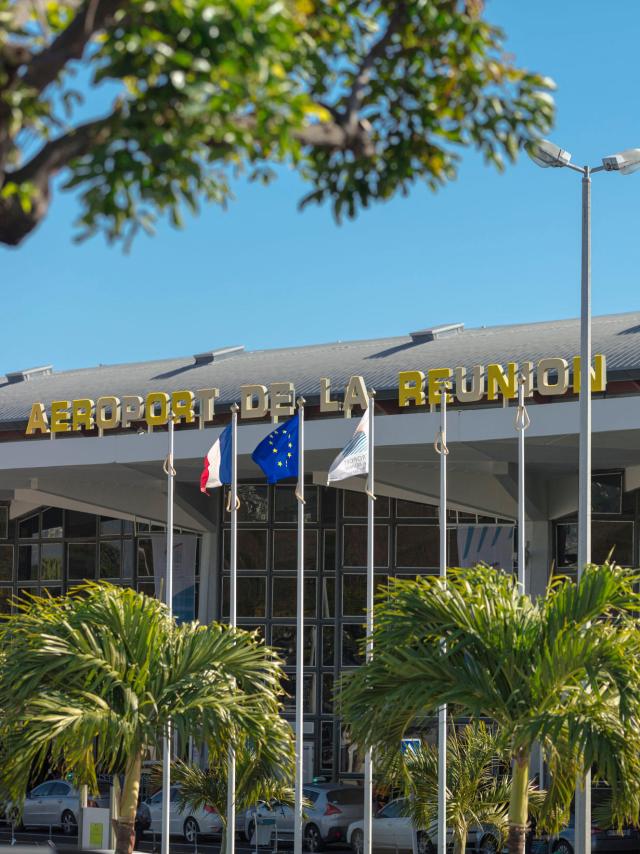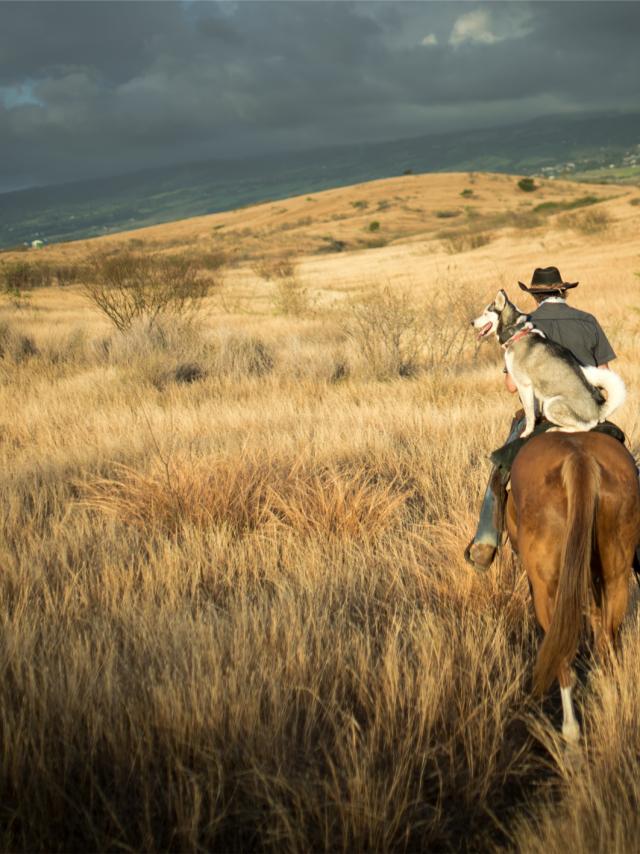Hiring a car on Reunion Island in the best possible conditions. Take the time to read the rental contract, rental terms and conditions, applicable costs, guarantees and insurance cover included or not in the rental price, as well as the extra optional insurance policies on offer.
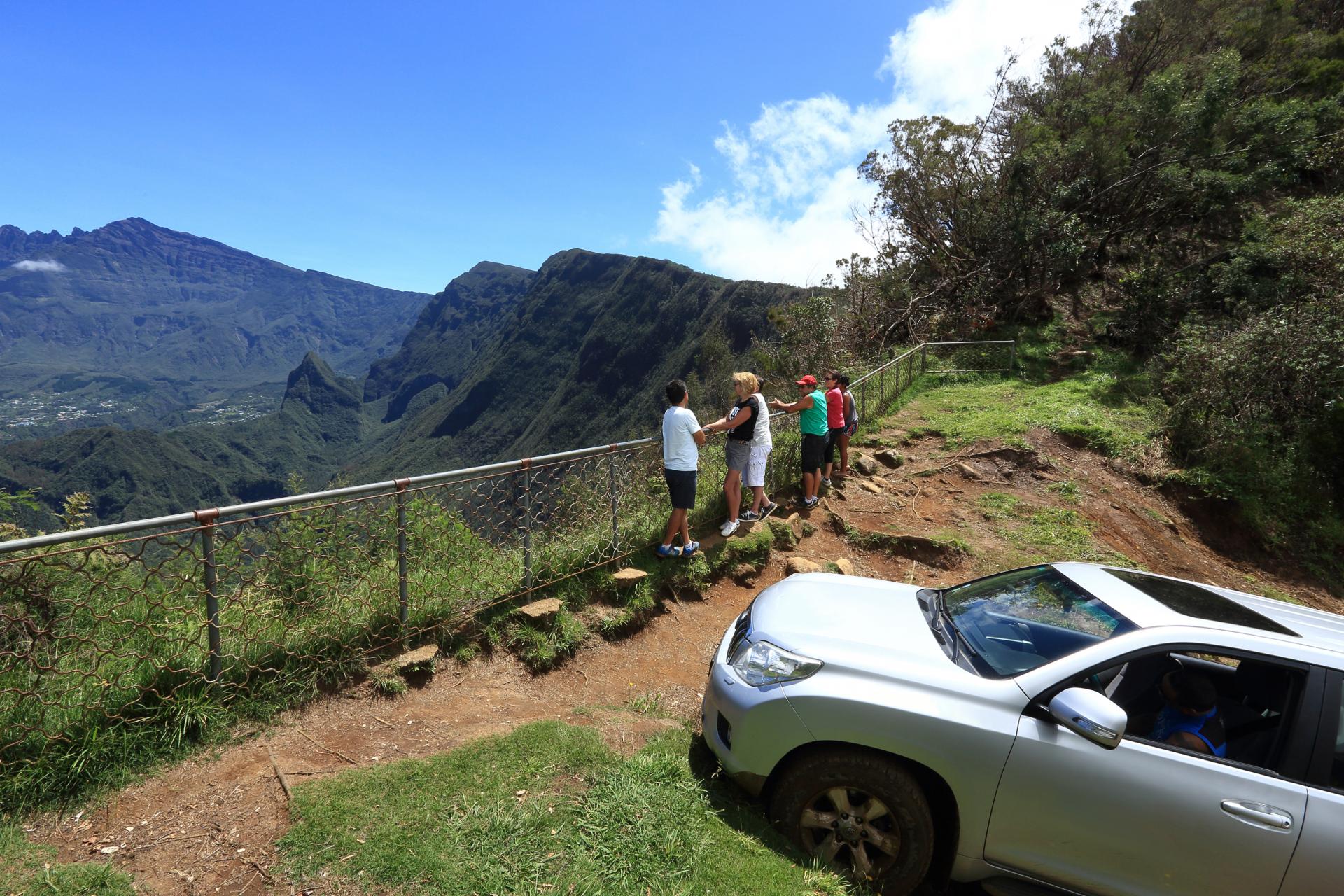 Photographe
Photographe Photographe
Photographe Simpleslider1510731806 0.jpg
Simpleslider1510731806 0.jpg→ Book in advance
In the high season (from November to January and July to August), you may find that there are no more economy vehicles available. You can book a car online, before leaving and then pick it up from the La Réunion Roland Garros airport. You have the possibility of dropping the car back off at one of the agencies across the island. Make your bookings now!
→ Choosing your vehicle
For a successful holiday, choose a diesel or petrol vehicle depending on where and how far you’re planning on going. On Reunion Island, there are some very steep mountain roads so it’s important to take this into account when choosing which car you would like to hire. On this type of road, it would be better to have a powerful car. Car hire companies offer a wide range of vehicles, from small models (peugeot, renault, twingo, clio) to premium models, models for more specific needs (cabriolets, 4×4, SUV, minivan, minibus), and a range of hybrid cars. There are some vehicles adapted for people with disabilities on Reunion Island and they are also available to hire.
Getting good deals from car-hire companies
Depending on where you plan on driving, in the island’s highlands, along the coast or right to the heart of the different regions, you’ll be driving along coastal roads, through valleys and cane sugar fields, near steep mountainsides, and along narrow roads, so be careful! Contact the car-hire companies, who have a wide range of equipment and different options available, to make your car-hire experience as stress-free as possible:
 Aéroport de la Réunion Roland Garros
Aéroport de la Réunion Roland GarrosThe price of car hire on Reunion Island
On Reunion Island, there are many car hire companies, some of which bear the Qualité Tourisme Ile de la Réunion label for top-quality tourism services, and some are members of the Syndicat de l’importation et du Commerce de La Réunion (SICR) (Union for Reunion Island Trade and Imports). They have agencies at the airport and in partner hotels. They offer good prices, and are often cheaper than those in mainland France. An economical or category ‘A’ vehicle will cost you around €20 to €35 per day, depending on the rental period, including insurance and often with unlimited mileage.
Insurance and Deductibles
We recommend you get good insurance cover as the risks on Reunion Island are not the same as in mainland France. Remember to check the insurance cover and excess (variable depending on the service providers). Generally, you will be provided with third-party insurance (property damage and personal injury). Whatever method of payment you choose to use and insurance cover you take out, you will have to provide a security deposit which is the same amount as the excess. In the event of an at-fault accident, theft, broken window or damage to the vehicle, the deposit shall be retained. Make sure you take all the necessary measures when reporting an incident. Read the clauses of the contract carefully!
The speed limit is 80 km/hr on some roads of Reunion Island
This law came into effect on the 1st July 2018. On Reunion Island, some sections of the national roads have applied this speed limit. A law came into effect on the 1st July 2018 to lower the speed limit to 80km/hr on two-way roads that are not separated by a central reservation, that previously had a speed limit of 90km/hr.
The road network
Generally speaking, the whole road network on Reunion Island is well maintained, and well signposted. The highway code is similar to that in mainland France. Come and explore the ultimate island in a hire car. Every road is unique and surprisingly beautiful:
- The Route des Plaines (Plains Road), the only main road through the highlands that goes through the Plaine des Palmistes and Plaine des Cafres to reach the south of the island.
- The Route de Cilaos (Cilaos Road) with 400 bends
- The Route des Plages (Beaches Road) lined with white sand, palm trees and a turquoise-blue sea
- The Route de Salazie (Salazie Road) from which you can see the famous Voile de la Mariée waterfall
- The road that leads to the wild south in Petite île to discover Grand Anse beach
- The Route des Laves (Lava Road), shaped by volcanic lava flow
- The Route des Tamarins (Tamarinds Road), with some exceptional works of art
In the busy regions, between Saint-Denis and Saint-Gilles, in Saint-Pierre and Saint-Benoît, there is often a lot of traffic during rush hour (7am-9am), (4pm-6pm). Don’t forget to take a bottle of water with you, even more so if you have fragile people with you (young children, elderly people, etc.). Be careful while driving in the highlands, roads can sometimes be very winding and narrow, do not cross any flooded areas. Make sure you find out about any closed roads before setting off to the airport: traffic news. When driving around Reunion Island, Google Maps and Waze really come in handy.
Watch out for speed cameras !
 Photographe
Photographe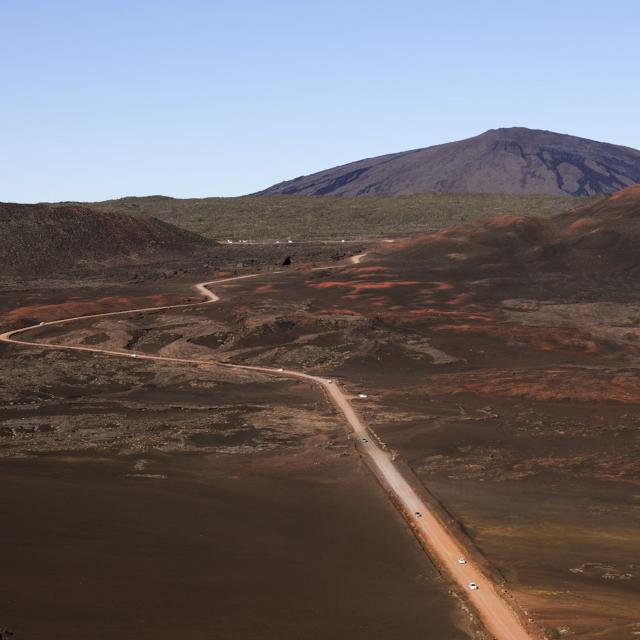 volcan plaine des sables23
volcan plaine des sables23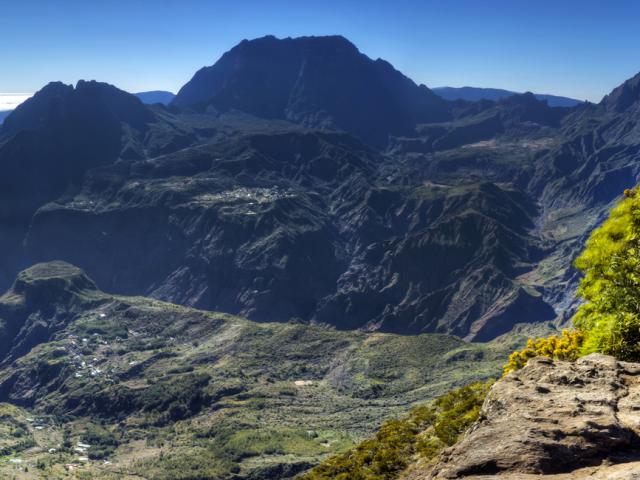 Cirque de Mafate Belvédère
Cirque de Mafate BelvédèreParking on Reunion Island
You can easily park on Reunion Island. There are many car parks open to the public, near beaches, in the highlands, near hiking trail departure points (some car parks have a security guard throughout the day). In the big towns, car parks are sometimes free, and sometimes require a fee. However, be careful !
- Park your car in a safe place
- Do not leave the keys in the ignition when you leave the car
- Don’t leave any objects visible
- Lock all the car doors and activate the alarm

